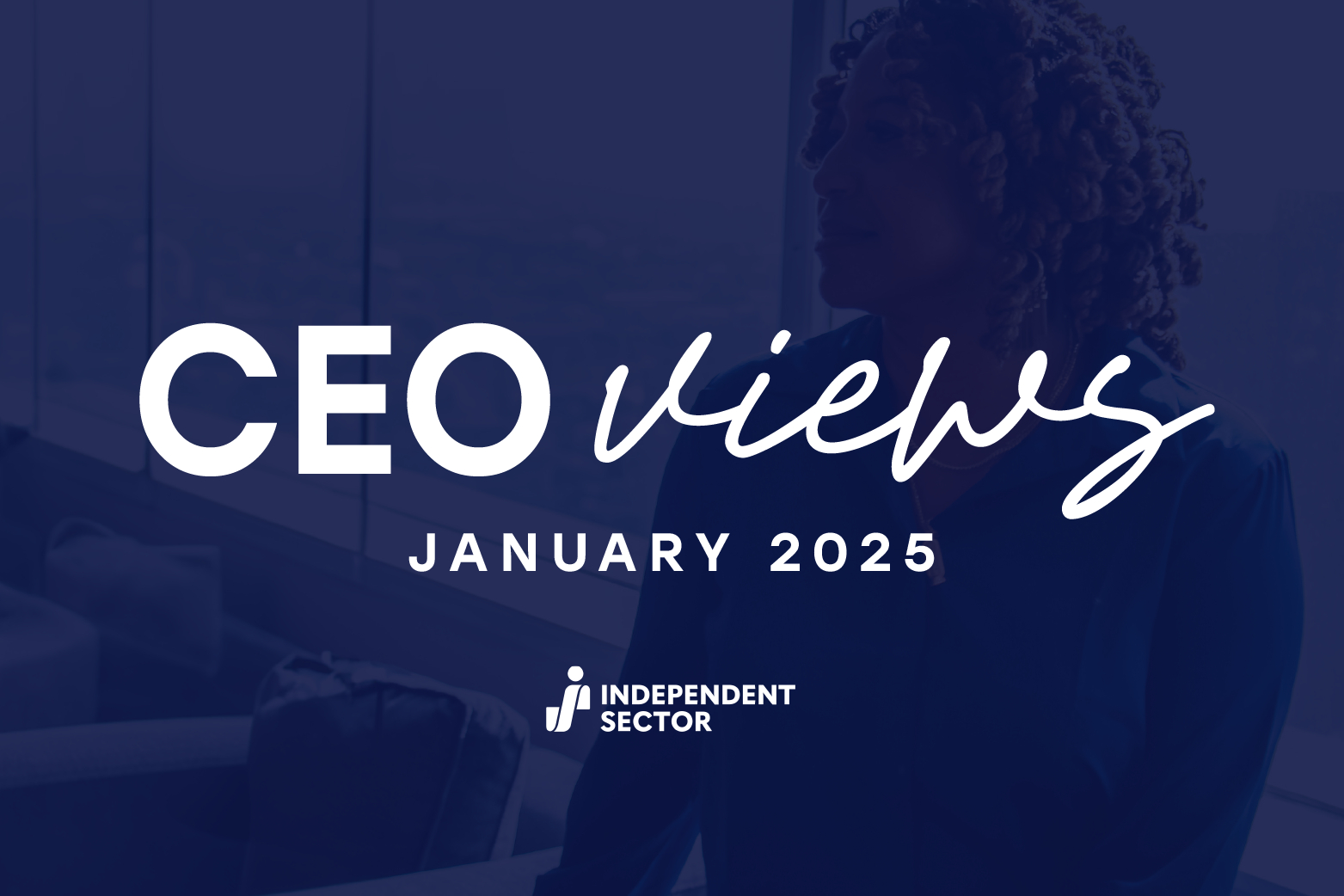Benjamin Soskis joined Independent Sector in January 2025 as a Visiting Scholar. Here, he’ll explore opportunities to proactively champion a vibrant civil society. In this blog, Ben reflects on the historical and contemporary significance of civil society, the challenges of defining and communicating its value, and the urgent need to invest in its future.
As a historian of philanthropy and civil society, I’ve sometimes joked that I am professionally obligated to invoke Alexis de Tocqueville in every official utterance. (See? Obligation fulfilled.) Tocqueville was the French nobleman who toured the United States in the early 1830s and published a famous account of his travels. In doing so, he not only showed himself to be one of the keenest observers of the new nation, but also became the patron saint of our rich civil society through his observations of Americans’ penchant for forming associations.
Citing Tocqueville has become a shorthand for celebrating civil society — a way to signify a shared appreciation for its centrality to our history and national identity. But in doing so, we can sometimes sidestep the need to spell out exactly what we mean by that term: why we value civil society, how we should promote and sustain it, and how it is related to other important values and institutions.
I’m not immune to that temptation myself (especially when there’s a word count looming). I’ve spent my career examining the history of public attitudes toward philanthropy and civil society — first as an independent scholar and now as a senior research associate with the Urban Institute’s Center on Nonprofits and Philanthropy, an IS Member. Through this work, I understand the complexity of these terms — and how valuable it can be to unpack them. And as someone who has researched and written about the challenges involved in nonprofit sector-wide advocacy, I appreciate that offhand references to Tocqueville only take you so far in a Senate office.
I also believe that Tocqueville matters more than ever. At this moment, understanding — and communicating — the importance of civil society to our common life seems especially vital. That’s why I’m excited to work with Independent Sector as a Visiting Scholar — through writing, research, and conversation — to explore this issue. The promotion of civil society has been core to IS’s purpose from its founding. Its first president, Brian O’Connell, wrote a book whose title says it all: Civil Society: The Underpinnings of American Democracy. This work isn’t easy, as I’ll explain below. But if there’s a place to ground this essential mission in the U.S., it’s IS.
One reason promoting civil society is challenging is that there’s no standard definition of it. Most often, it refers to the associational space outside government and the market where individuals come together for a common purpose. Civil society includes the nonprofit sector but also unincorporated groups, religious institutions, and informal organizations; it is the soil in which all can grow. It also embodies core ideals: independence from the state, the importance of human connection and association, and pluralism — a recognition of diverse interests, perspectives, and preferences.
The concept of civil society extends back to classical antiquity and evolved significantly during the eighteenth-century Enlightenment. In the recent past, its prominence has ebbed and flowed, often with broader political currents. During the Cold War, scholars highlighted it as the marker of a free society. After the fall of the Soviet Union, activists sought to cultivate it in post-Soviet nations.
Because of that history, the idea of civil society can seem both familiar and foreign to many Americans. In fact, survey research from IS Member PACE’s 2022 Civic Language Perception Project showed that “civil society” is one of the least understood terms associated with civic engagement and democracy work. The report found that the American public does “not have much response, association, or relationship” with the term and suggests it is “open to branding.”
While many Americans may not understand the precise meaning of the term, they often intuitively grasp its importance when they feel it is under threat. Take, for instance, the mobilization of individuals and nonprofit leaders against H.R. 9495 — a bill that would grant the Treasury Secretary the power to strip a nonprofit’s tax-exempt status by designating it a “terrorist supporting organization.” Independent Sector joined other sector-wide advocacy organizations in opposing H.R. 9495.
These reactive coalitions do important work. The threats facing civil society in the U.S. and globally are very real. But because these efforts arise in the heat of crisis, their defense of civil society tends to be ad hoc and short-lived.
This leads to the questions that will animate my time as Visiting Scholar at IS:
- What are the opportunities to not just defend civil society in the face of imminent threats, but to proactively champion it and advocate for its nourishment?
- What new infrastructure might be necessary for this task, and how might existing infrastructure be repurposed?
- What coalitions — crossing boundaries of ideology, party, race, culture, and economic status — might be formed around this goal to create as broad a movement as possible?
- What arguments, language, and precedents might be adopted to advance this work?
- And, especially significant for Independent Sector, what is the relationship between a thriving nonprofit sector and a healthy, robust civil society?
I’m excited to take on these questions alongside IS staff and leadership. But I also know a much broader community of thinkers, researchers and activists is engaged with these issues as well. So, here’s an invitation: if civil society is something you work on, write about, or simply care about … reach out. Let’s talk.
Benjamin Soskis is a Visiting Scholar at Independent Sector.



